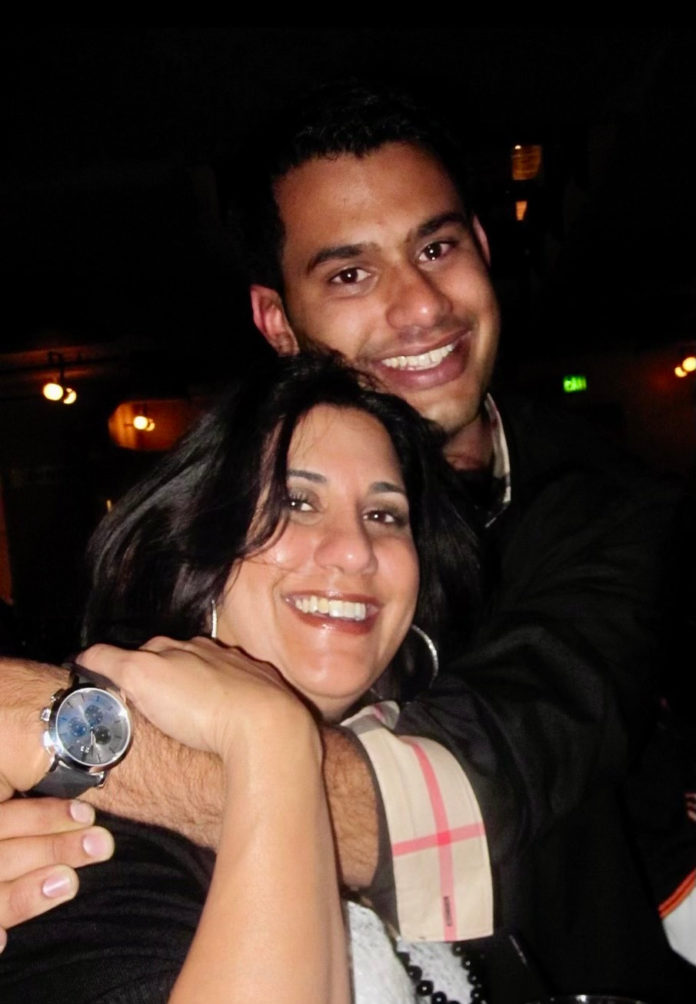The Ranger Josh Fund aims to help provide mental health resources for families trying to support loved ones
By Lisa Plachy
Before her youngest brother died by suicide in 2023, Jasmine Basrai witnessed him cycle through diagnoses, facilities and bouts of recovery and crises. Though she and her family tried to be involved in his care, once Joshua turned 18, that became more difficult depending on the decisions he, as an adult, made for himself.
Helping Joshua relied on his consent—to keep his family informed, to allow his doctors to release medical information, to be in a state of sound decision-making. When these factors didn’t align, Jasmine and her family were extremely limited as to how they could intervene. And they didn’t know how to find information that would help them and their family member. Even after his death, many unanswered questions remained.
“As a relatively intelligent and well-versed person,” said Jasmine, “I never felt so helpless in my life.”
It’s a scenario familiar to anyone with a family member who struggles with mental health issues, as Jasmine would hear over and over again from people after she helped start the Ranger Josh Fund (https://www.hallerspharmacy.com/rangerjosh). Named after her brother’s online gaming handle, the fund seeks to fill in the gaps of resources for both individuals struggling with mental health and, critically, their family members. It is supported by partnerships with the Washington Healthcare Hospital Foundation, the Hume Center and Alameda County.
Jasmine and the rest of the Basrai family launched the fund in April 2024, around the time of Joshua’s birthday and less than a year after his death. It was something she felt she could do quickly—and, with the help of Washington Hospital, realistically—to provide the resources that were missing for both Joshua and herself.
“There’s nowhere to go. It’s so frustrating. I wish by now, I could give you four phone numbers, say here’s five places,” says Jasmine about where families can turn to when they need help taking care of a loved one who’s struggling with mental health. Ideally the fund will help solve this, so she can offer something that says: “Look, you’re not alone.”
On the individual side, the fund has already opened up rooms at a Washington Hospital facility that serve as an alternative to emergency rooms—or worse, jail–as Basrai notes is common when someone is experiencing a mental health crisis.
On the family side, there is progress toward creating the kind of resources Jasmine wishes she would have had. The exact form is still to be determined. She’s thinking of a support line or a website—anything that offers guidance to someone who is struggling to help a family member manage mental illness.
What matters most to Jasmine is that these kinds of resources become more easily accessible. While she praises national efforts like the National Alliance on Mental Illness (NAMI) hotline, it’s important to serve her immediate Fremont community where she, Josh and her parents have lived most of their lives, helping provide essential vaccines during the pandemic and running Haller’s Pharmacy.
“I hope it stays local. I don’t need a national coalition. I don’t want this to happen to the next Josh, to the next Josh’s family,” she said.
That, she also hopes, will inspire more people to share their stories and their resources, to provide support before it’s too late. Ideally this will evolve the larger conversations around mental health—to focus not just on patients but also their families.
“So much goes into the individual going through the crisis. It affects the whole society, the whole fabric,” she says. The fund is still raising money and, with the power of an organization like Washington Hospital behind the fund, Jasmine feels they can create real change. “It gives me peace of mind that something will happen.”
If you or someone you know is in crisis, call or text the 988 Suicide and Crisis Lifeline at 988 (para ayuda en español, llame al 988). The Lifeline provides 24-hour, confidential support to anyone in suicidal crisis or emotional distress. Call 911 in life-threatening situations.




